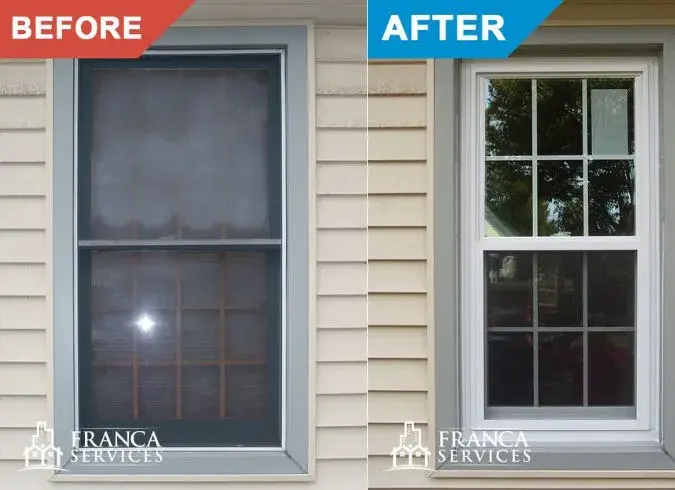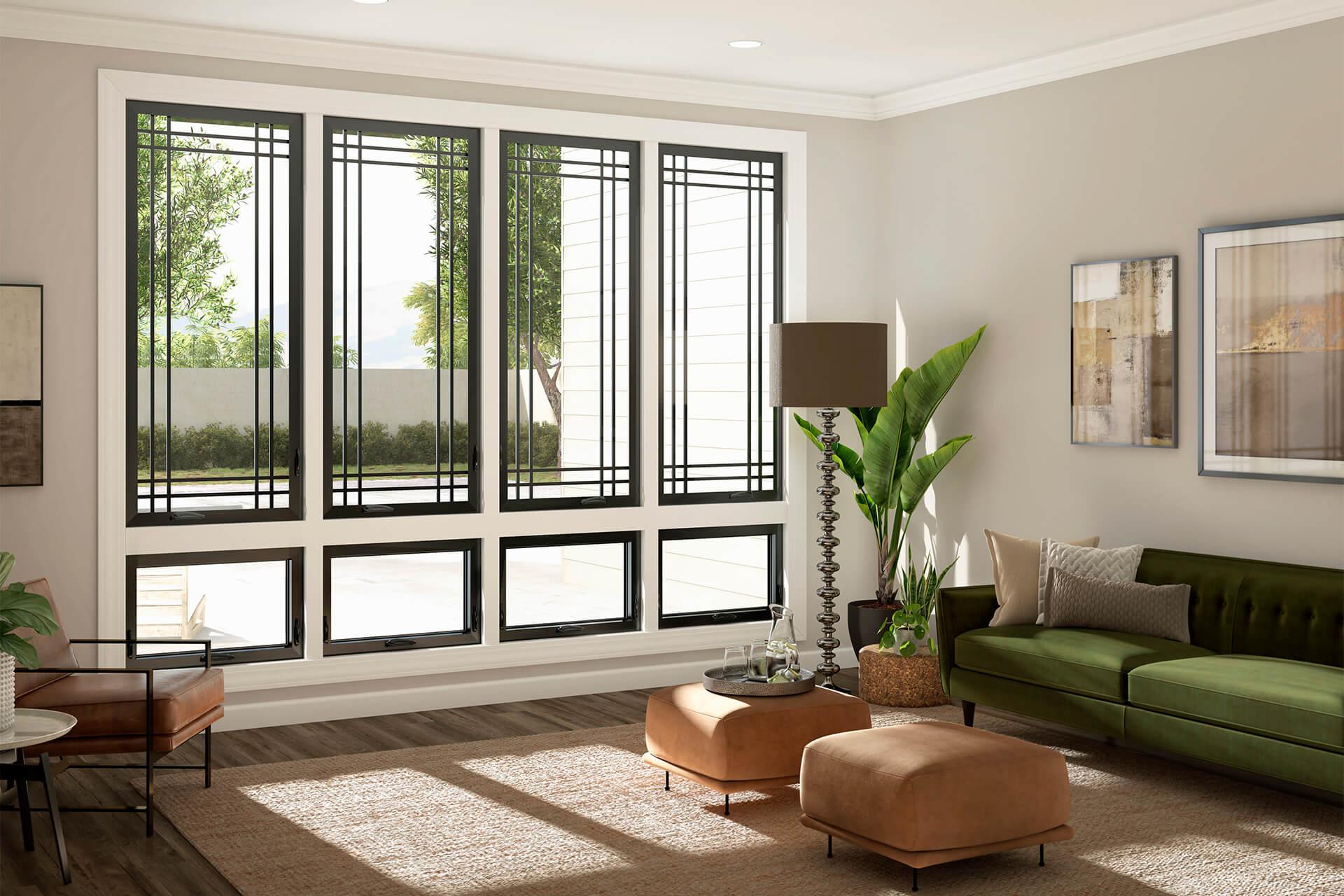Upgrade Your Home With Energy-Efficient Window Substitutes
In the world of home renovation, the decision to update to energy-efficient window replacements can significantly impact both the performance and looks of a home (Richmond window replacement). As homeowners seek ways to boost the effectiveness and sustainability of their space, the choice of home windows plays a pivotal function in achieving these objectives. Beyond the surface level of mere visual appeals, energy-efficient windows offer a plethora of advantages that surpass simple aesthetic allure. With a mindful option procedure that takes into consideration numerous variables, from glass types to installment strategies, starting this home upgrade trip might verify to be a transformative undertaking.
Benefits of Energy-Efficient Windows

The installation of energy-efficient home windows offers significant financial savings on utility costs while enhancing ecological sustainability. Energy-efficient windows are developed to minimize warmth loss and gain, decreasing the need for home heating and cooling down systems to function overtime. By effectively shielding the home, these windows assist preserve a comfy indoor temperature year-round, leading to reduced power intake and reduced utility expenses. Additionally, energy-efficient windows can help manage dampness degrees within the home, decreasing the danger of mold and mildew and mold development.
Beyond the monetary benefits, energy-efficient home windows add to environmental sustainability by reducing carbon discharges connected with energy production. In general, investing in energy-efficient windows not just enhances the comfort and performance of a home yet likewise lines up with ecologically mindful practices.
Kinds of Energy-Efficient Glass
Different sophisticated kinds of energy-efficient glass offer one-of-a-kind buildings that satisfy different requirements and choices in enhancing the sustainability and effectiveness of buildings. Low-emissivity (Low-E) glass is a popular alternative developed to reduce the amount of ultraviolet and infrared light that can travel through the glass, therefore reducing heat transfer. This kind of glass aids maintain a constant indoor temperature level, decreasing the requirement for heating or cooling systems, and eventually reducing power prices. An additional innovative alternative is spectrally selective glass, which enables noticeable light to pass via while blocking specific sorts of infrared radiation. This assists in keeping a comfortable indoor environment while reducing warmth gain. Triple-pane glass, including 3 layers of glass with insulating gas between them, supplies boosted thermal insulation, making it extremely energy-efficient. In addition, self-cleaning glass with a special finish that breaks down and loosens dust when exposed to sunlight can lower maintenance requirements and maintain home windows looking tidy. Each type of energy-efficient glass uses distinctive advantages, enabling home owners to choose the most ideal alternative based on their certain needs and goals.
Elements to Take Into Consideration When Choosing
When considering energy-efficient window substitutes, it is imperative to carefully examine details variables that line up with your sustainability goals and preferred power financial savings. One important factor to consider is the home window's power efficiency ratings, such as the U-factor and Solar Warm Gain Coefficient (SHGC) The U-factor procedures how well the window insulates, with reduced numbers suggesting much better insulation, while the SHGC shows the window's ability to block heat from sunlight. Additionally, the window framework product plays a substantial role in power efficiency. Materials like fiberglass, plastic, or wood with thermal breaks are excellent choices for decreasing more warmth transfer. An additional crucial factor to consider is the home window design and positioning concerning sunlight exposure. Selecting the right home window style and purposefully positioning them can make the most of all-natural light while minimizing heat gain or loss. Last but not least, installment high quality is key to ensuring the home windows carry out as planned. Appropriate installation aids avoid air leak, ensuring optimal energy effectiveness. By thoroughly evaluating these elements, you can select energy-efficient windows that enhance convenience, decrease power expenses, and profit the atmosphere.
Installation and Maintenance Tips

Routine maintenance is key to maintaining the effectiveness of your energy-efficient home windows. Check the weather-stripping and seals for any kind of splits or gaps and change them if needed to preserve the home windows' energy performance. Richmond window replacement.
In enhancement, oil moving components such as hinges and locks to guarantee smooth operation. By adhering to these installation and upkeep tips, you can enhance the power performance of your home and extend the lifespan of your energy-efficient windows.
Cost-Benefit Analysis of Upgrading

Energy-efficient windows are designed to reduce warmth transfer, reducing the requirement for home heating and cooling systems to work overtime. This can cause considerable savings on power bills, especially in areas with severe temperatures. Additionally, energy-efficient windows can boost the total worth of your home, making it extra attractive to potential customers if you make a decision to sell in the future.
When computing the cost-benefit analysis, variable in the prospective savings on power bills, any kind of offered motivations or refunds, and the lifespan of the home windows. While the first expense might be higher, the lasting cost savings and benefits of energy-efficient home windows make them a wise investment for house owners wanting to boost their property's power performance and worth.

Verdict
To conclude, upgrading to energy-efficient window replacements supplies many advantages such as reduced energy consumption, increased convenience, and expense financial savings. By selecting the suitable kind of energy-efficient glass and taking into consideration variables like framework product and setup, property owners can take full advantage of the effectiveness of their windows. Regular upkeep and correct installation are necessary for lasting performance. On the whole, the cost-benefit analysis of upgrading to energy-efficient home windows shows that the initial investment best replacement windows 2019 can result in substantial savings over time.
When pondering energy-efficient window substitutes, it is crucial to thoroughly assess details aspects that line up with your sustainability purposes and wanted power financial savings. The U-factor measures just how well the window protects, with reduced numbers showing far better insulation, while the SHGC suggests the home window's ability to block warm from sunshine. By very carefully assessing these factors, you can pick energy-efficient home windows that enhance convenience, minimize energy prices, and benefit the environment.
While energy-efficient home windows may have a higher ahead of time cost contrasted to standard windows, the lasting benefits usually surpass the preliminary investment.In verdict, updating to energy-efficient window substitutes supplies many benefits such as lowered power intake, enhanced comfort, and cost financial savings.